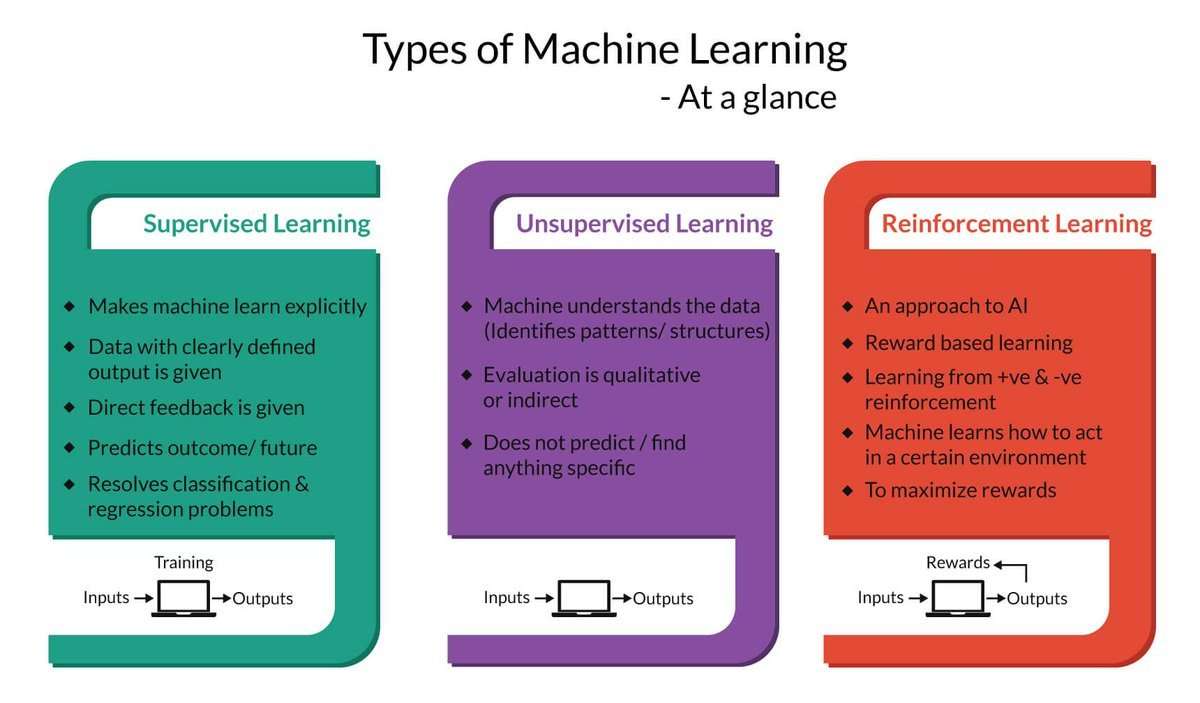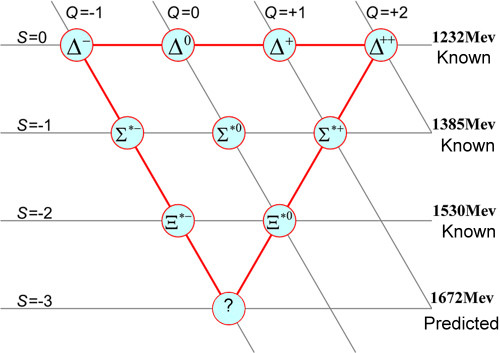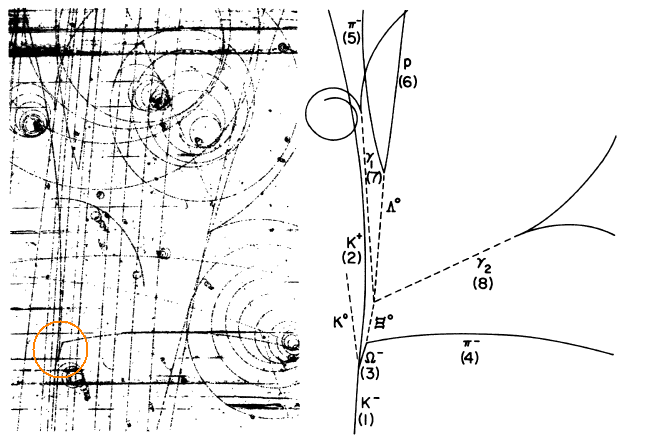They play chess at an evolutionary level beyond humans now this...
AI Designs Quantum Physics Experiments beyond What Any Human Has Conceived
AI Designs Quantum Physics Experiments beyond What Any Human Has Conceived
They play chess at an evolutionary level beyond humans now this...
AI Designs Quantum Physics Experiments beyond What Any Human Has Conceived
Looks like a fun read. I'll get to this later when I have time.They play chess at an evolutionary level beyond humans now this...
AI Designs Quantum Physics Experiments beyond What Any Human Has Conceived
This stuff is good enough to deserve its own Conspiracy Theory wherein the AI take over the Earth by Quantumly Entangling humanity.
OB
Quantum physicists while not as bizarre as mathematicians are renowned for their sense of humour.Two things struck me. The first is that Theseus is a much cooler name for a super computer than Melvin (not sure if there's an anagram in there or maybe there's some computing correlation with the Ship of Theseus?).
And secondly, this quote from the linked article:
'This process makes calculating the final quantum state much easier, although it is still hard for humans to understand'.
Stupid humans...
Thanks for the article. I enjoyed reading it.They play chess at an evolutionary level beyond humans now this...
AI Designs Quantum Physics Experiments beyond What Any Human Has Conceived
- I'm not sure I understand what they mean when they talk about generalizing a solution, yet whatever this term means under these circumstances, seems to be the key point being emphasised(?)They play chess at an evolutionary level beyond humans now this...
AI Designs Quantum Physics Experiments beyond What Any Human Has Conceived
I guess the point is that humans are using this AI "tool" in doing what humans arguably do very well; that is, to extrapolate from the specific to the general?
Also that there is a deep connection between QM experiments and mathematics' Graph Theory (which was also mentioned in a more detailed way in the OP SciAM article). The 2017 article says:Phenomena of quantum physics are perfectly computable—but often elude human logic. In the future, it would be precisely computer algorithms that could make a decisive contribution to the solution of quantum-physical questions, where human logic does not get any further, as was demonstrated now by Melvin.
An answer to a quantum-physical question provided by the algorithm Melvin has uncovered a hidden link between quantum experiments and the mathematical field of Graph Theory. Researchers from the Austrian Academy of Sciences and the University of Vienna found the deep connection between experimental quantum physics and this mathematical theory in the study of Melvin's unusual solutions, which lies beyond human intuition.
Another earlier report here (2018), says that these AIs (MELVIN and Theseus?) use reinforcement learning .. Ie: similar to AlphaZero and Leela Chess Zero, (discussed in a previous thread here).
This is all still a fairly new topic for me. However, what appears to be a fairly consistent message, is that AI's Reinforcement learning technique is aimed at eliminating/reducing human bias, which is now starting to be shown by these experiments, as being intrinsic to the type of inductive logic we use.This is what I don't get. Is AI currently doing what we do...but infinitely faster? Or is it now doing something else? Or at least heading somewhere else?

Ha! I think that Wiki page contradicts the thinking I gave in my last post, about how science is suited to creating a mind (from scratch)?! Lol.Quantum physics experiments in areas such as particle physics are based on phenomenology where the experimental design is an outcome of the theory.
I'm not sure I agree with that .. hypotheses make predictions too, (which then get tested). I guess its easier to visualise what they mean there, by thinking of the example of how the Higgs Mechanism theory predicted the existence of the Higgs boson, (then it was found, as per the theoretical predictions, in the Atlas and CMS detectors)?Phenomenology stands in contrast with experimentation in the scientific method, in which the goal of the experiment is to test a scientific hypothesis instead of making predictions.
Yes .. I suppose interferometers can be used for other purposes involving EM waves .. but didn't the original concept of EM waves, start out as being largely theoretical constructs .. (ie: trigonometric functions)?sjastro said:In other fields this is not the case such as general relativity which does not tell us interferometers are to be used to detect gravitational waves.
In this case experimental design is independent of theory.

So it appears that the real 'takeaway' here might be that the AI Reinforced learning technique, gives access to solutions which then mysteriously 'test out' (or are 'consistent with') real life measurements/observations .. So why should that be so?sjastro said:AI has come up with experiments far more complicated than what we humans can envisage and quantum physicists have used generalization or simplification in order to make sure these experiments are consistent with the phenomenological aspects of the quantum mechanics and quantum field theories.
Yes .. and they raise other more unsettling issues about mathematical systems giving access to what's real, which I thought was pretty much sorted out, (by being formally constrained), during Godel's time?sjastro said:An AI algorithm developing quantum physics experiments even without creating new aspects of the theory in a field which baffles most of the human race and is difficult even for its practitioners is still an impressive feat.
Phenomenology physics involves a theoretical experiment where the outcome of the experiment is the prediction.Ha! I think that Wiki page contradicts the thinking I gave in my last post, about how science is suited to creating a mind (from scratch)?! Lol.
Ie: it says:
I'm not sure I agree with that .. hypotheses make predictions too, (which then get tested). I guess its easier to visualise what they mean there, by thinking of the example of how the Higgs Mechanism theory predicted the existence of the Higgs boson, (then it was found, as per the theoretical predictions, in the Atlas and CMS detectors)?


The discovery of gravitational waves is not an example of phenomenological physics.Yes .. I suppose interferometers can be used for other purposes involving EM waves .. but didn't the original concept of EM waves, start out as being largely theoretical constructs .. (ie: trigonometric functions)?
I suppose EM waves ended up being superimposed in order to specifically cause the phenomenon of interference, which was then used to extract information using interferometers, so that might be an example of phenomenology?
(I'm just thinking out loud here, as an attempt at trying to 'get' the phenomology distinction as it pertains to the AI approach, embedded in my mind ...)
An interesting project perhaps for a PhD is to use AI to see if it is able to reproduce the Ω⁻ tracks developed in the 1960s.So it appears that the real 'takeaway' here might be that the AI Reinforced learning technique, gives access to solutions which then mysteriously 'test out' (or are 'consistent with') real life measurements/observations .. So why should that be so?
Thanks kindly for all that useful info .. It'll be interesting to track where else this AI research goes. I noticed a couple of weeks ago, it was announced that some team was working on applying it to see what shows up in one of my favourite topics .. molecular Abiogenesis.Phenomenology physics involves a theoretical experiment where the outcome of the experiment is the prediction.
An example is the discovery of the omega minus particle Ω⁻ in the 1960s.
In the period from 1930s to the mid 1960s particle physicists made myriad discoveries of particles which could be grouped into symmetries according to their properties such as charge Q or strangeness S which is a quantum number conserved in the creation of a particle but not in its decay.
One such symmetry is the baryon decuplet composed of;
Δ⁻, Δ⁰, Δ⁺, and Δ⁺⁺ delta baryons
Σ*⁻, Σ*⁰, and Σ*⁺ sigma baryons
Ξ*⁻ and Ξ*⁰ xi baryons
Ω⁻ omega baryon
In the early 1960s nine of the particles were known and grouped in the symmetry, the properties of the unknown or Ω⁻ particle could be predicted by simply noting its position in the symmetry and reading off the theoretical mass in MeV, charge and strangeness number.

The unknown particle at the base of the triangle was the omega minus Ω⁻ particle.
Theorizing about the particle's existence is one thing, developing an experiment to find it is a distinctly different problem.
Using phenomenology physics, particle physicists came up with a theoretical bubble chamber which predicted the track of the omega minus particle.

The diagram on the right hand side is the prediction of the pathway of the Ω⁻ including the trajectories of other particles in a theoretical bubble chamber, the left hand side is the actual discovery photograph of the Ω⁻ in a real bubble chamber.
Physicists had trained female scanners (a sign of the times) to examine thousands of photographs for the tell tale trajectory of the Ω⁻ as predicted by phenomenological physics.
The discovery of the Higgs boson followed the same principles (computers replaced female scanners by this time) except the theory and phenomenological physics is vastly more complicated.
The discovery of gravitational waves is not an example of phenomenological physics.
Before the use of interferometers physicists used Weber bars but due to their lack of sensitivity failed to detect gravitational waves.
The evolution of the experiment from Weber bars to interferometers was independent of the theory.
An interesting project perhaps for a PhD is to use AI to see if it is able to reproduce the Ω⁻ tracks developed in the 1960s.
Whereas humans where trained in quantum mechanics in order to develop the theoretical experiment, AI would only be given the most basic information and train itself.
The chess analogy applies here, humans only supplied AlphaZero and Leela Chess Zero with the rules of chess; both algorithms developed tactics and strategies way beyond the very best human chess players.
It looks as if the same situation is occurring with quantum physics experiments.
Useful description. I was impressed that Melvin tried out a novel layout that humans would not have thought of -- that's a kind of...try everything and see what works. After humans have set what is the goal, and how to know if the goal is being met, then the machine can work rapidly and tirelessly to try out all sorts of possibilities.Melvin (and Theseus) like the chess programs AlphaZero and Leela Chess Zero trained itself using reinforcement learning.

Unlike supervised learning there was no human assistance and the quantum experiments devised by Melvin and Theseus are purely the result of AI.
Quantum physics experiments in areas such as particle physics are based on phenomenology where the experimental design is an outcome of the theory.
In other fields this is not the case such as general relativity which does not tell us interferometers are to be used to detect gravitational waves.
In this case experimental design is independent of theory.
AI has come up with experiments far more complicated than what we humans can envisage and quantum physicists have used generalization or simplification in order to make sure these experiments are consistent with the phenomenological aspects of the quantum mechanics and quantum field theories.
An AI algorithm developing quantum physics experiments even without creating new aspects of the theory in a field which baffles most of the human race and is difficult even for its practitioners is still an impressive feat.
What you are describing is a brute force approach to programming.Useful description. I was impressed that Melvin tried out a novel layout that humans would not have thought of -- that's a kind of...try everything and see what works. After humans have set what is the goal, and how to know if the goal is being met, then the machine can work rapidly and tirelessly to try out all sorts of possibilities.
Abstract
The game of chess is the longest-studied domain in the history of artificial intelligence. The strongest programs are based on a combination of sophisticated search techniques, domain-specific adaptations, and handcrafted evaluation functions that have been refined by human experts over several decades. By contrast, the AlphaGo Zero program recently achieved superhuman performance in the game of Go by reinforcement learning from self-play. In this paper, we generalize this approach into a single AlphaZero algorithm that can achieve superhuman performance in many challenging games. Starting from random play and given no domain knowledge except the game rules, AlphaZero convincingly defeated a world champion program in the games of chess and shogi (Japanese chess), as well as Go.
Yes, reinforcement is a powerful learning technique. As i worded it:What you are describing is a brute force approach to programming.
Brute force is only effective for a finite number of possibilities where the program has ample time and hardware processing speed to evaluate each possibility.
This is not occurring with reinforcement learning.
It’s easier to explain for an AI chess algorithm such as AlphaZero Chess than for a quantum physics algorithm both of which are based on reinforcement learning.
The goal of chess is simply to win the game.
This goal can be understood by AI as a numerical function.
For example if the AI algorithm wins a game it gains +1, a draw 0 and a loss -1.
Its objective is to maximize this score by playing chess games with itself.
When it loses a game it discards the game, if it wins or draws it retains the game.
The algorithm is essentially training itself how to play chess without human intervention.
While the above description is simplistic a more detailed account is given in the paper.
A general reinforcement learning algorithm that masters chess, shogi, and Go through self-play
If a trial move meets the goal it's reinforced. In chess the classic problem has long been to evaluate a position reached after a move.After humans have set what is the goal, and how to know if the goal is being met,
